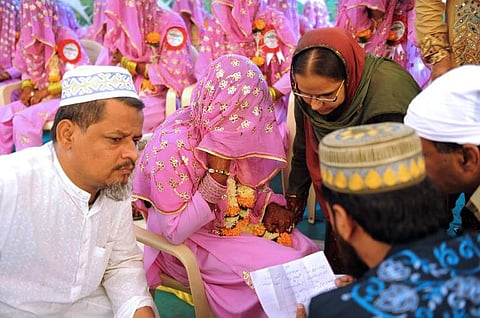

COLOMBO: Sri Lankan Muslim women are banking on the framers of the country’s new constitution to raise the minimum age of marriage for Muslim girls to the national statutory level of 18.
Under the existing Muslim Marriage and Divorce (MMDA) Act 1951, there is no minimum age as such, except for the stipulation that, if a girl is below 12, the permission of the Quazi is required, says the Muslim Personal Law Reforms Action Group (PMLRAG). There is also no requirement for the consent of the girl if she is less than 18.
According to PMLRAG, data on registered Muslim marriages from four divisions in two Eastern districts, show over 143 cases of underage marriage in 2014 and over 118 cases for the first few months of 2015.
All this is because Article 16(1) of the present Constitution allows these discrepancies. Art 16 (1) lists laws which cannot change with changes in the constitution, and the MMDA is one of them. The obnoxious thing is that Art 16 (1) supersedes the guarantees of equality and non-discrimination contained in Art 12 .This means that nothing can be done if an aspect of Muslim Personal Law violates a Fundamental Right under Art 12.
Almost all Muslim women who testified before the Public Representations Committee on Constitutional Reforms and the Sub-Committee on Fundamental Rights wanted the repeal of Art 16 (1). But Muslim parties have been against it on the plea that non-Muslims cannot dictate terms on such religious matters. All members of the Sub-Committee on Fundamental Rights were for a change, except the Muslim member.
According to Shreen Saroor of PMLRAG, Muslim political leaders are willing to change if the Ulemas come out in support of it. But so far, no Muslim religious leader or religious body has voiced an opinion. The multi-ethnic Justice Saleem Marsoof committee, which was set up in 2009 to consider changes in the MMDA, is yet to release a report.
However, M.A.Sumanthiran of the Tamil National Alliance (TNA) said that in the new constitution, Fundamental Rights cannot be denied to any group.
“Laws which were drafted at a different time under different conditions, cannot continue if they violate existing concepts of democracy and fundamental rights,” he said. Sumanthiran was confident that this view will ultimately prevail.